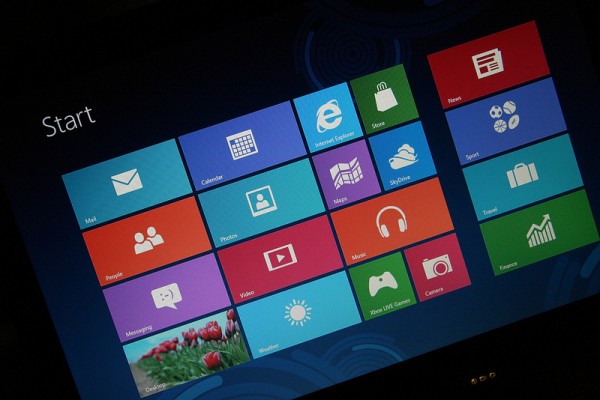Prepare your computer for Windows 8

October 26. That will be the release date for Windows 8. The cost of the upgrade will be $39.99. So what do you have to do to get ready for Windows 8?
First, you can upgrade from Windows 7; but you can also upgrade from XP or Vista. But that is not enough. I have covered four of the most pressing questions and answers in Four things you REALLY need to know about Windows 8 upgrades about a month ago, and while it was certainly helpful for many users, it did not address how to check and prepare your system for the actual update.
Hardware
You must have the right hardware. That means that your processor must be at least a 1GHz CPU or faster. RAM? It must be 1GB for a 32-bit machine or 2GB for a 64-bit machine. Disk space size -- try 16GB (for 32-bit) or 20GB (for 64-bit). And graphics, you need a DirectX 9-capable video card with WDDM driver. But Microsoft has created several tools to aid you in finding out if the hardware of your PC is compatible with Windows 8. First, there is Microsoft’s Upgrade Assistant that checks for Windows 8 readiness, and second the Compatibility Center that you can use to check specific hardware and software.
Basically, if the hardware runs under Windows 7, it is almost certain that it will also run perfectly fine under Windows 8.
Drivers
As you know, drivers support operating system functions which the operating system wasn't design for. These are external programs that usually come after the fact, or come from companies that build devices that will run on the OS. So you must make sure that the drivers in your current PC will work with Windows 8 if you require specific feature support that generic drivers that ship with Windows 8 do not provide you with.
Software and License Keys
Glitch. If you're upgrading from Windows XP or Vista, you'll find that you have to reinstall your software programs. So prepare yourself with a list of the programs you want to reinstall and have the installation files ready to go. Also, gather up the license keys for those programs.
If you can't find your license keys, the Belarc Advisor might be able to help you. The app analyzes a machine's weak points. It looks at elements such as whether antivirus software is up to date, or whether all the security flaws in Windows have been patched. But note, this program doesn't fix the problems itself, rather it gives clear advice on how to address each issue.
- Windows 7 to Windows 8: you can migrate all user settings, personal files and installed applications.
- Windows Vista to Windows 8: you can migrate all user settings and personal files, but not installed applications.
- Windows XP or Windows 8 RP to Windows 8: you can only migrate personal files but not installed programs or user settings.
Update your patches and service packs
Keep your system as current as possible with fixes, patches, upgrade software and service packs. This will help the upgrade go faster and allow your new Windows 8 system to hit the ground running. Free up disk space, check Windows system security, clean up the registry, and defragment your drives. While optional, it may reduce issues that you may run into during the update of the system.
Back up your personal files
Your data. I mean your data. Don't risk losing your personal data during the upgrade. Get backups of all your documents, pictures, music, and videos, and push them to an external hard drive and disconnect the drive during the upgrade. And don’t forget your e-mail too, if you're using a desktop e-mail client. It wouldn't hurt to save a local copy of your bookmarks too that you have on your browsers.
Basically, back up all important files that you do not want to lose if the upgrade fails half way through. You can sync some features with cloud storage instead of saving the data locally.
Clone your system before you upgrade
All upgrades work smoothly, right? I mean there’s never a problem right? Only in your dreams. So if for some reason, your upgrade turns into a bad dream you may have to revert back to your old version of Windows; this might become your only choice. So before that happens it might be smart to clone your system with Norton Ghost, Acronis True Image, or Clonezilla, so you can bring back the previous version of Windows that was on your computer just in case.
The vision of Windows 8 can be very exciting because a lot of changes are expected, like touch (screen) and Metro the interface formerly known as Metro (the GUI interface). But because there may be new changes, some not expected, it is a good idea to prepare yourself for the upgrade.
Photo Credit: Pete
